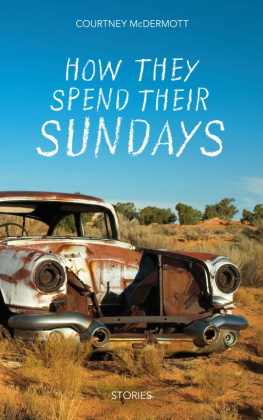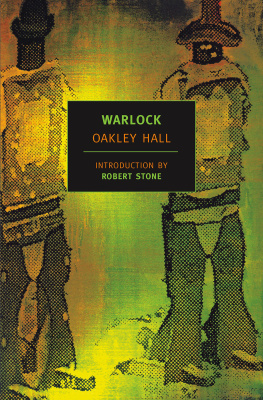
This edition is published by BORODINO BOOKS www.pp-publishing.com
To join our mailing list for new titles or for issues with our books borodinobooks@gmail.com
Or on Facebook
Text originally published in 1927 under the same title.
Borodino Books 2017, all rights reserved. No part of this publication may be reproduced, stored in a retrieval system or transmitted by any means, electrical, mechanical or otherwise without the written permission of the copyright holder.
Publishers Note
Although in most cases we have retained the Authors original spelling and grammar to authentically reproduce the work of the Author and the original intent of such material, some additional notes and clarifications have been added for the modern readers benefit.
We have also made every effort to include all maps and illustrations of the original edition the limitations of formatting do not allow of including larger maps, we will upload as many of these maps as possible.
ANNIE OAKLEY: WOMAN AT ARMS
A BIOGRAPHY
BY
COURTNEY RYLEY COOPER
Annie Oakley at the height of her career, wearing the more conspicuous of the many medals presented to her by famous societies, celebrities, and members of royalty.
TABLE OF CONTENTS
Contents
TABLE OF CONTENTS
DEDICATION
To
FRED AND ALLENE STONE
A FEW WORDS BY WILL ROGERS
Annie Oakley, one of the finest and truest of American women, was better known to the older generation than she is today. In her time she was pre-eminent in her profession. She was the acknowledged headliner for years and years of the Great Buffalo Bill Show, the best known Woman in the world, because when she was with the show it toured everywhere.
Little Miss Sure-Shot,that was what they called her,was not only the greatest rifle shot for a woman that ever lived, but I doubt if her character could be matched outside of some Saint. She and her fine husband, Frank Butler, were great friends of Fred Stone and family, and I first became acquainted with her there, years ago. I had heard cowboys who had traveled with the Buffalo Bill Show speak of her in almost reverence. They loved her, She was a marvelous woman; kindest hearted, most thoughtful, a wonderful Christian woman.
I went out to see her last Spring in Dayton. She was in bed. Shed been bedridden for months, but she was just as cheerful. I told her I would see her in the Fall when I came back and tried to cheer her up in the usual dumb way we have of doing those things. She said I would not come back. She says.
But I will meet you
Well, she will certainly keep her end of the bargain. Just think of a little, frail, gray-haired woman who had spent her life with a wild west show, remaining in your memory as being just about the most perfect thing you ever saw beside your own Mother.
Whenever I think of Annie Oakley I stop and say to myself, Its what you are, and not what you are in, that makes you.
Beverly Hills, Cal.
April, 1927.
LIST OF PLATES
ANNIE OAKLEY AT THE HEIGHT OF HER CAREER
FROM AN EARLY WOODCUT
WAITING FOR THE TARGET
COLONEL WILLIAM F. CODY
IN WINTER QUARTERS
SO PENSIVE, YET SO BOLD
ANNIE OAKLEY IN ACTION
ANOTHER BIT OF DARING
A GROUP FROM THE WILD WEST SHOW
A PORTRAIT FROM THE FAMILY ALBUM
POSTER OF THE WESTERN GIRL
IN LATER YEARS
TWO SNAPSHOTS AT PINEHURST
DAVE, CANINE SON OF WILLIAM TELL
DRAWINGS IN TEXT
BIRTHPLACE OF ANNIE OAKLEY
HOW ANNIE OAKLEY COULD HAVE PREVENTED THE WORLD WAR
CHAPTER ONE
IN the autumn of 1926, they laid away Little Missys sewing basket, her fine needles, the unfinished pieces of embroidery which, dainty stitch after dainty stitch, had grown under her skilled fingers and sharp eyes from the embryo of a mere stamped pattern to works of artistry. But some of these were brought forth again; there were those grateful for even a bit of uncompleted fancy work, if that trifle of linen and floss could form an intrinsic remembrance of a white haired woman who in all her life had done naught but kindness, who had given of her store of wealth that suffering might be alleviated, the uneducated benefited by the advantage of books and schooling, generosity provided where penury had been before; the Little Missy had firsthand knowledge of what hardships meant, and even the adulation of millions who once used her name more frequently than that of the ruling President of the United States could not wipe out a feeling of comraderie for all whose lot might not be of the happiest. A philanthropist? Not at all, in the common acceptation of the term. She perhaps would have resented the word. Such things were merely the outpouring of the nature of a woman who had fought her way from virtual slavery to a position, in which, for a span of years at least, she was the most famous feminine personage in the entire world. Her name was Mrs. Frank E. Butler. If that means nothing, reflect then upon the more magical one of Annie Oakley.
The world moves swiftly enough that the heroine of one generation may be, to a certain degree at least, forgotten in the next. So was it with Annie Oakley in the broad sense; there is at hand a clipping from a news syndicate written a few months before her death by Will Rogers, which emphasizes this phase of things rather acutely. It is in far different style from the comedians daily quips; a touch of sentiment instead of the usual jest:
This is a good story about a little woman that all the older generation remember. She was the reigning sensation of America and Europe during the heyday of Buffalo Bills Wild West show. She was their star. Her picture was on more billboards than a modern Gloria Swanson. It was Annie Oakley, the greatest woman rifle shot the world has ever produced. Nobody took her place. There was only one. She is bedridden from an automobile accident a few years ago. She for years taught the fashionable people at Pinehurst, N. C., to shoot. America is worshipping at the feet of Raquel Meller, the Spanish lady. Europe talked the same of Annie Oakley in her day. I want you to write her, all you who remember her, and those that can go and see her. Her address is 706 Lexington Avenue, Dayton, Ohio. She will be a lesson to you. She is a greater character than she was a rifle shot. Circuses have produced the cleanest living class of people in America today, and Annie Oakleys name, her lovable traits, her thoughtful consideration of others, will live as a mark for any woman to shoot at.
In a pile of letters, clippings and old pictures, I found the answer to the tribute of Will Rogers as I compiled the material for this book. Annie Oakley gave up her fight for life a few months after the squib concerning her appeared. In the effects which remained to be culled over by a biographer, were packet upon packet of letters, from every part of the world, which had gone forward to her in response to the appeal of the cowboy comedian. Most of these were genuine tributes, from persons who had known her in other days, from men and women who remembered the greatest thrill of childhood, that day in fact, when the Wild West Show had come to town and they had formed a part of the big audience which had gathered to witness the stalwart Buffalo Bill introduce his Congress of Rough Riders of the World, and see Annie Oakley, Little Sure Shot as the Indian warrior, Sitting Bull, had called her, perform the feats of marksmanship which had made her name worldwide. Others were from persons who had heard of her and never seen her, genuine epistles of cheer and of sympathy. Then there was a type which was entirely different.










